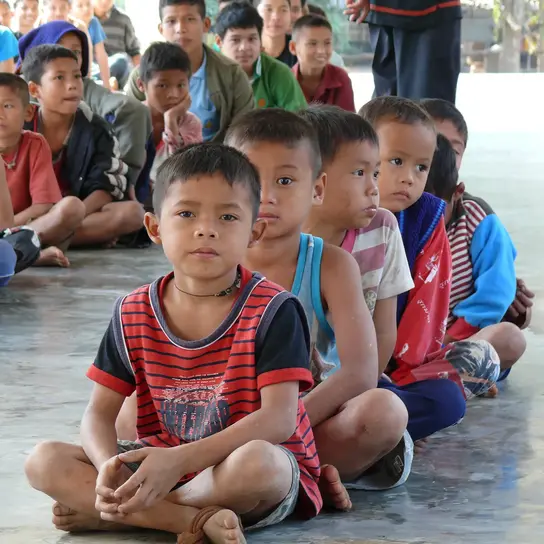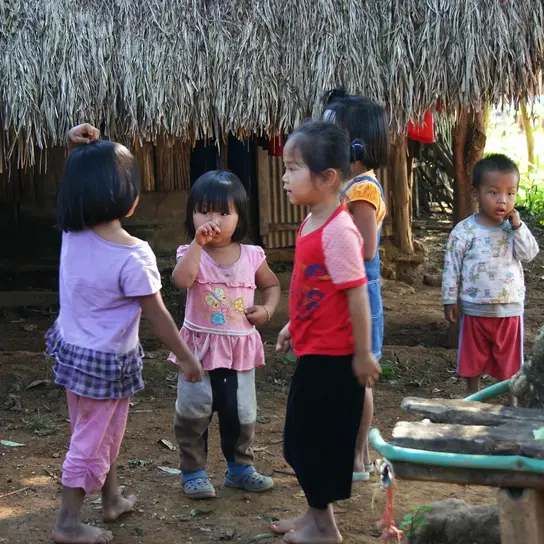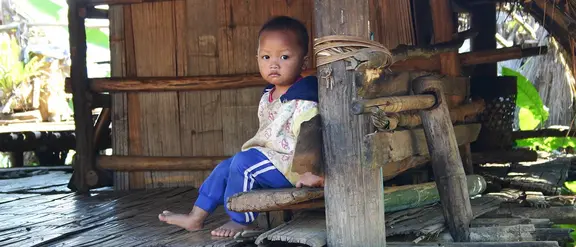Thailand: A legal status for refugee children
In northern Thailand, Terre des Hommes supports refugee children and members of indigenous minorities. They are stateless and are often denied even basic rights. Only gradually, and thanks to persistent efforts, is the situation improving.
Between one and two million people in Thailand are stateless. In the north, in the province of Mae Hong Son, it's well over half the population. Estimating their exact number is difficult for one simple reason: they don't exist on paper.
Your support for strong children!
Many are members of indigenous hill tribes such as the Meo, Karen, Lahu, Akha, Yao, or Lisu, who settled remote regions generations ago. Others are children of refugees. Those fleeing across the border from the military dictatorship in Myanmar, for example, are often not registered. Children of refugee families born on Thai territory are not recognized by any government.
Stateless children do have rights, and the Thai government certainly recognizes them: they have the right to go to school, receive hospital care, and access state courts. However, stateless children are often discriminated against by authorities. And there are people who exploit their situation. Some corrupt officials double the fees charged for things like hospital visits. Families resort to black market loan sharks to pay for things like school fees.

Stateless children often don't receive their school-leaving certificate at the end of the year, which is so important for scholarships and career opportunities. "As a stateless person, it often feels like everything is working against you," recalls Som, who grew up as the child of Burmese refugees.
The problem also lies in the legal uncertainty faced by stateless families. Many don't know how to defend themselves against violations of their rights, and they lack trust in the state. This is precisely where many projects supported by Terre des Hommes come in: At the Development Center for Children and Community Network (DCCN), for example, children learn what children's and human rights mean to them. This provides security and strengthens their self-confidence. And they learn to organize themselves: In networks like the "Salween Youth Network" and the "Mekong Youth Assembly," which have long been politically active in advocating for improved rights for stateless children.
Slowly but surely, progress is being made. The Thai government is now expanding infrastructure in the remote project regions. Young refugees, migrants, and stateless people are living in less isolation. Legal aid services are being established, and authorities are being sensitized and trained. And thanks to the work of Terre des Hommes and partner organizations like DCCN, more than 32,000 children and young people have now been able to obtain legal status or even Thai citizenship.
They are now role models for their communities. Many are taking on responsibility themselves to pass on their experiences and, in turn, support stateless children.
